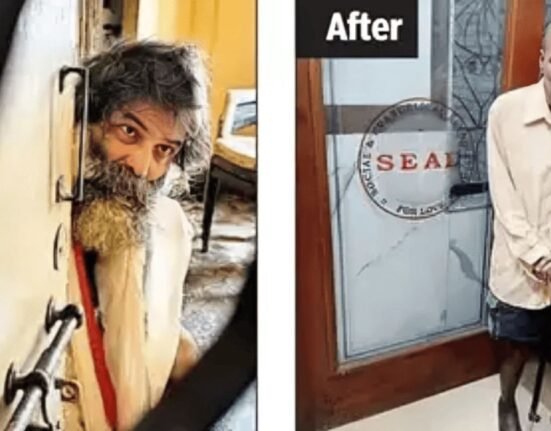As it was predicted that Covid was going to have lasting effects on the mental health of the people who had suffered from it and various mental health problems were predicted from it. Cases of Post Traumatic Stress Disorder and Obsessive Compulsive Disorder have come forward now. A 37-year-old Panchkula man has been diagnosed with post-traumatic stress disorder as he describes that he has nightmares about someone inserting a tube in his nose which wakes him up every night and since then he hasn’t had a good night sleep because of it. He is also experienced having flashes of the OT light and hears voices also which are all the after-effects of suffering from covid. Even a doctor in Chandigarh who too had acquired coronavirus now spends two to three hours per day washing his hands, because of the fear that she might acquire it again if she doesn’t wash her hands and she also feels compelled by the way her shoes are kept as she always wants them to be in a proper manner.
Post-traumatic stress disorder and obsessive-compulsive disorder are the 2 most common problems faced by people who got the infection. Even though it was the body that was affected from covid but psychological trauma is directed connected with it as when there is some danger to our physical body, our mental health directly gets impacted. 6 per cent of men and 10 percent of women does experience PTSD in their life. When they are exposed to a prolonged amount of stress and alongside disruption in one’s own life with feelings of being scared for their own life, all these symptoms even after recovering keep lingering on with them which later erupt as post-traumatic stress disorder which includes symptoms of nightmares, flashbacks, experiences recurrent memories, feeling of guilt, shame, anger, troubles in sleeping, losing interest in activities which were enjoyable before, and trying to run away from any such event, memory or place that would remind them of the traumatic event that happened before in place of facing them and having neutral feelings towards them.
Talking about obsessive-compulsive disorder, we know that some lines and barriers had been broken off, as hygiene and safety was on the utmost priority list of everyone and washing hands, sanitizing, and taking care of themselves had become the most essential step for survival itself. The fine line between obsessive behaviour and normal behaviour which needed to be adapted was broken because of covid. It was a psychosocial implication that has been brought forward as a result of the covid pandemic. These behaviours as considered necessary and important right now but even when the worldwide pandemic would get over, this behaviour will be continued and sustained lifelong for some of the people and end up being registered as obsessive-compulsive disorder.
PGIMER’s psychiatry department, the head is Dr D Basu told that even after 4 weeks after, people do have the symptoms which can be physical or neuro-psychiatric. Even after recovering, there are a lot of symptoms of physical health declining of patients. The increase in mental disease of individuals mainly happened after the second wave of coronavirus. Other problems like heavy disturbance in sleep patterns, depression, isolation, disconnection with others and their own selves, anxiety-related symptoms, irritability and battling life. A lot of lifestyle changes had too been brought in by people, some of them were able to manage them in a better way than others and those who were not able to conform to the new guidelines towards life and were having adjustment problems with it struggled with their own selves too. So the person should without any second thoughts get help and visit a mental health professional once they start observing their different behaviour before it actually becomes a severe problem and only then do we get help for it which is not the right way.












Leave feedback about this